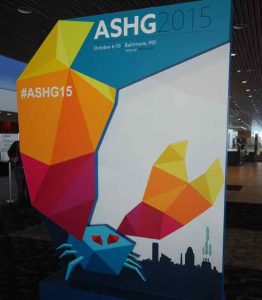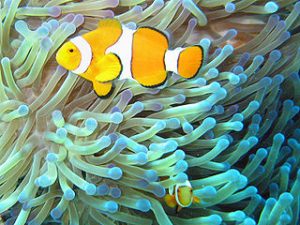Following on from his recent, and extensively discussed, offer to host SVPCA 2017, and a plan for the future, Richard Butler is now circulating his update, soliciting volunteers for the committee that virtually everyone agreed was a good idea. Dear SVPCA/SPPC friends and colleagues, We have identified you as a member of the SVPCA/SPPC community through having attended the meeting within the last five years.
Messaggi di Rogue Scholar

**The Human Genetics Massive: #ASHG15 in Baltimore ** This week the human genetics “tribe” (as NIH Director Francis Collins referred to “his people” here) have muscled out the Eastside and Westside crews to take over the Baltimore waterfront for the yearly American Society of Human Genetics (#ASHG15) meeting.

Preprints are in the air! A few weeks ago, Stephen Curry had a piece about them in the Guardian (Peer review, preprints and the speed of science) and pterosaur palaeontologist Liz Martin published Preprints in science on her blog Musings of Clumsy Palaeontologist . The latter in particular has spawned a prolific and fascinating comment stream.
We’re delighted to host this guest-blog on behalf of Richard Butler, Senior Research Fellow at the University of Birmingham, and guru of basal ornithischians. (Note that Matt and I don’t necessarily endorse or agree with everything Richard says; but we’re pleased to provide a forum for discussion.) Dear friends and colleagues within the SVPCA community; I am posting here courtesy of Mike and Matt with two objectives.

What does Neuroinformatics and The Great Barrier Reef have in Common? Both are faced with challenges and comprise of beautiful colourful entities that should be freely accessible and shared. This year’s International Neuroinformatics Coordinating Facility (INCF) Neuroinformatics 2015 meeting was held in the northern tropical Queensland city of Cairns, Australia.

Wouldn’t it be great if, after a meeting like the 2015 SVPCA, there was a published set of proceedings? A special issue of a journal, perhaps, that collected papers that emerge from the work presented there. Of course the problem with special issues, and edited volumes in general, is that they take forever to come out.
My last post (Unhappy thoughts on student projects at SVPCA 2015) was stupid and ill-judged. As a result of very helpful conversations with a senior palaeontologist (who was much more courteous about it that he or she needed to be), I have decided to retract that article rather than editing it further to clarify. I deeply wish I’d never posted it, and I offer my apologies to everyone I insulted.
THIS POST IS RETRACTED. The reasons are explained in the next post. I wish I had never posted this, but you can’t undo what is done, especially on the Internet, so I am not deleting it but marking it as retracted. I suggest you don’t bother reading on, but it’s here if you want to. There were some surprises in the the contents of the SVPCA programme this year.
In my last post I mentioned three caveats that I wanted to add to Miriam Posner’s keynote address to the Keystone Digital Humanities Conference, and I discussed the fact that the categories we use to organize our lived experience are slippery and problematic and just as reified as the ideological categories employed by researchers.
I enjoyed Miriam Posner’s keynote address at the Keystone Digital Humanities Conference. It was far from the only talk last week that was animated by a desire for justice and compassion, and it was good to see that desire given such prominence by the organizers and applauded by the attendees. As a linguist I also welcomed Posner’s focus on categorization and language diversity.